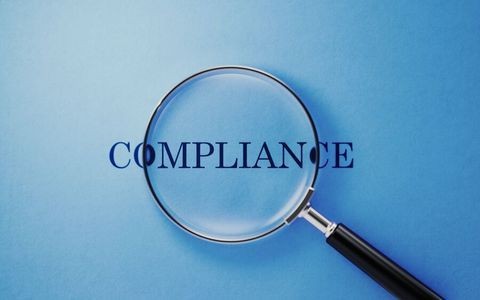Michael K. Atkinson
Overview
Michael K. Atkinson has led some of the most significant criminal fraud, public corruption, and national security cases in the United States and offers clients a rare combination of extensive knowledge of both criminal white collar defense and corporate compliance. Michael is the former presidentially appointed and Senate-confirmed Inspector General of the U.S. Intelligence Community in the Office of the Director of National Intelligence, and he previously served in senior Department of Justice roles spanning two decades in the National Security Division, the Criminal Division, and the U.S. Attorney’s Office for the District of Columbia, where he headed the Fraud and Public Corruption Section. Michael has been publicly described as “unflappable,” “meticulous,” one you “trust with investigations,” and a lawyer who handles himself with “class,” “intelligence,” “sensitivity,” and “strength.” He co-leads the firm’s National Security Practice Group.
Career & Education
- Office of the Director of National Intelligence
Inspector General of the Intelligence Community, 2018–2020 - Department of Justice: National Security Division
Senior Counsel to the Assistant Attorney General, 2016–2018
Acting Deputy Assistant Attorney General, National Asset Protection, 2016 - Department of Justice: United States Attorneys' Office
District of Columbia, Fraud and Public Corruption Section—Acting Chief, 2015–2016
Deputy Chief, 2012–2015
Assistant U.S. Attorney, 2006–2012 - Department of Justice: Criminal Division
Fraud Section, Trial Attorney, 2002–2006
- Office of the Director of National Intelligence
- Syracuse University, B.A., 1986
- Cornell Law School, J.D., 1991
- District of Columbia
- Supreme Court of the United States
- U.S. Court of Appeals for the D.C. Circuit
- U.S. District Court for the District of Columbia
- U.S. District Court for the District of Maryland
- U.S. Court of Appeals for the D.C. Circuit
- Maryland Court of Appeals
- Maryland Court of Special Appeals
Michael's Insights
Press Coverage | 02.20.25
In Conversation – With Former Intelligence Community IG Michael Atkinson
Press Coverage | 01.19.25
Obscure Pentagon Watchlist Offers Blueprint For China Sanctions
Firm News | 3 min read | 12.05.24
Client Alert | 2 min read | 09.25.24
Representative Matters
Representative Firm Experience
- A publicly traded defense contractor in a voluntary self-disclosure to the U.S. Department of Justice, National Security Division.
- A publicly traded communications and information technology provider on the national security ramifications of an FCPA settlement.
- A privately-owned defense contractor in a voluntary self-disclosure to the U.S. Department of Justice, Criminal Division, Public Integrity Section.
- A publicly traded defense contractor in a voluntary self-disclosure to the U.S. Department of Justice, Antitrust Division.
- A private academic institution in a voluntary self-disclosure to the U.S. Department of Commerce, Bureau of Industry and Security.
- A privately-owned defense contractor in a grand jury investigation by the U.S. Attorney’s Office for the District of Columbia.
- A privately-owned defense contractor in an assessment of its compliance with the National Industrial Security Program Operating Manual (NISPOM) and related insider threat and security policies.
- A group of U.S. national laboratories in an OIG investigation seeking disclosure of employees’ sensitive personally identifiable information.
- A public academic institution in an investigation by the U.S. Department of Justice and multiple OIGs regarding potential unauthorized disclosures of sensitive information, potential conflicts of interest and conflicts of commitment, and other federal procurement and grant related issues.
- A non-profit institution in an internal investigation into unauthorized disclosures of confidential information.
- A private academic institution in a congressional investigation concerning the coronavirus crisis and related issues.
- A private company in inquiries by a congressional committee and the U.S. Department of Commerce, International Trade Administration, into national security issues related to the manufacture, sale, and operation of its products.
- A global non-profit organization in a congressional inquiry concerning the coronavirus crisis and epidemic preparedness.
- Multi-national corporations concerning privacy, civil liberties, and national security issues in cross-border data transfers of sensitive information.
- A Special Committee of the Board of Directors of a public traded company in an internal investigation of alleged securities fraud.
- A privately-owned biotechnology company on transactions implicating the Foreign Corrupt Practices Act (FCPA), the UK Bribery Act, and other anti-corruption and anti-bribery laws.
- A global professional services company concerning compliance and regulatory strategy for developing, testing, and implementing AI tools in support of police and law enforcement entities.
- Multiple U.S. defense contractors on the ethical principles for AI and guidance around lethal autonomous weapons and weapons systems.
- A predictive employment provider on compliance and regulatory strategy regarding New York City Local Law 144 on the design, use, and independent auditing requirements of automated employment decision tools.
- The former head of special projects at the Ethereum Foundation in connection with a conspiracy to violate the International Emergency Economic Powers Act (IEEPA) for providing advice to North Korea on blockchain.
- An Intelligence Community employee in connection with an OIG investigation.
- An individual investigated in a high-profile criminal case for potential campaign finance violations by the U.S. Attorney’s Office for the Southern District of New York.
Representative Government Experience
- Obtained the jury trial convictions of the former Chief Executive Officer and the former Vice President of Sales for Caribbean Operations for violating the FCPA and obstruction of justice.
- Lead prosecutor in the largest domestic bribery and bid steering scheme in the history of federal contracting, which required oversight of law enforcement agents from multiple federal agencies as part of an investigation that spanned the United States, Japan, the Philippines, and South Korea.
- Obtained the convictions of a former Member of Congress and his spouse in connection with defrauding the Congressman’s campaign committee and tax evasion.
- Supervised the prosecution of the largest publicly-traded telecommunications manufacturer in China, and the fourth largest telecommunications manufacturer in the world, for conspiring to violate the International Emergency Economics Powers Act (IEEPA), which resulted in a guilty plea and the largest criminal fine ever obtained by the Department of Justice in an IEEPA case.
- Secured a non-prosecution agreement with a global software company to strengthen security protocols to increase information security by regulating remote access to U.S. company networks and transfers of sensitive data.
- Supervised the prosecution of two multi-national financial institutions, which agreed to pay, collectively, over $2.2 billion to resolve criminal and regulatory charges that the institutions violated economic sanctions targeting Iran and Sudan
- Obtained agreements with subsidiaries of a financial services corporation and an insurance conglomerate arising from a securities fraud investigation related to the improper use of special purpose entities, which resulted in the payment of over $245 million in monetary penalties and restitution.
- Obtained the convictions of the Chief Executive Officer and two board members of a publicly traded company based in China for a tax conspiracy, which prosecution also included obtaining the convictions of three attorneys for obstruction of justice and false statements arising from a securities fraud investigation.
- Obtained the convictions of the former owner of the District of Columbia’s largest government contracting firm, as well as three candidates for and one member of the District of Columbia Council, for federal and District of Columbia campaign finance violations.
- Prosecuted a then-sitting United States Congressman for conspiracy, bribery, honest services fraud, FCPA, RICO, money laundering, and obstruction of justice, which prosecution also led to the conviction of a Chief Executive Officer for bribery of the Congressman and the conviction of a former Congressional staff member for aiding and abetting bribery and conspiring to bribe the Congressman.
- Supervised the investigation and prosecution of the largest health care takedown in the history of the District of Columbia concerning 20 business owners, executives, and employees for their roles in over $80 million in Medicaid fraud among home health care agencies and nurse staffing agencies.
Michael's Insights
Press Coverage | 02.20.25
In Conversation – With Former Intelligence Community IG Michael Atkinson
Press Coverage | 01.19.25
Obscure Pentagon Watchlist Offers Blueprint For China Sanctions
Firm News | 3 min read | 12.05.24
Client Alert | 2 min read | 09.25.24
Recognition
- Attorney General’s Award for Distinguished Service
- United States Attorney’s Award for Exceptional Performance by an AUSA
- Assistant Attorney General’s Award for National Security
- Executive Office for United States Attorneys: Director’s Award for Superior Performance by an AUSA
- Joe A. Callaway Award for Civic Courage, which recognizes individuals in any area of endeavor who, with integrity and at some personal risk, take a public stance to advance truth and justice, and who challenge prevailing conditions in pursuit of the common good
Michael's Insights
Press Coverage | 02.20.25
In Conversation – With Former Intelligence Community IG Michael Atkinson
Press Coverage | 01.19.25
Obscure Pentagon Watchlist Offers Blueprint For China Sanctions
Firm News | 3 min read | 12.05.24
Client Alert | 2 min read | 09.25.24
Insights
"Cyber–Artificial Intelligence Panel," Mid-West Regional DSAC Conference 2024, Creve Coeur, MO
|04.10.24
Examine Contracts For Chinese Anti-Foreign Sanctions Law Liability, Lawyer Says
|10.04.23
Export Compliance Daily
‘Unflappable’ D.C. U.S. Attorney Takes Charge At Perilous Political Moment
|03.30.22
The National Law Journal
Biden Can do More to Protect Inspectors General, Says Former Watchdog Fired by Trump
|02.15.22
Government Executive
Practices
- White Collar and Regulatory Enforcement
- National Security
- Congressional Investigations
- Monitorships and Independent Counsel
- Investigations
- Committee on Foreign Investment in the United States (CFIUS)
- False Claims Act Defense
- Supply Chain Management
- Whistleblower Investigations
- False Claims Act Defense
- Government Contracts Investigations
- Congressional Investigations
- Artificial Intelligence
Industries
Michael's Insights
Press Coverage | 02.20.25
In Conversation – With Former Intelligence Community IG Michael Atkinson
Press Coverage | 01.19.25
Obscure Pentagon Watchlist Offers Blueprint For China Sanctions
Firm News | 3 min read | 12.05.24
Client Alert | 2 min read | 09.25.24





